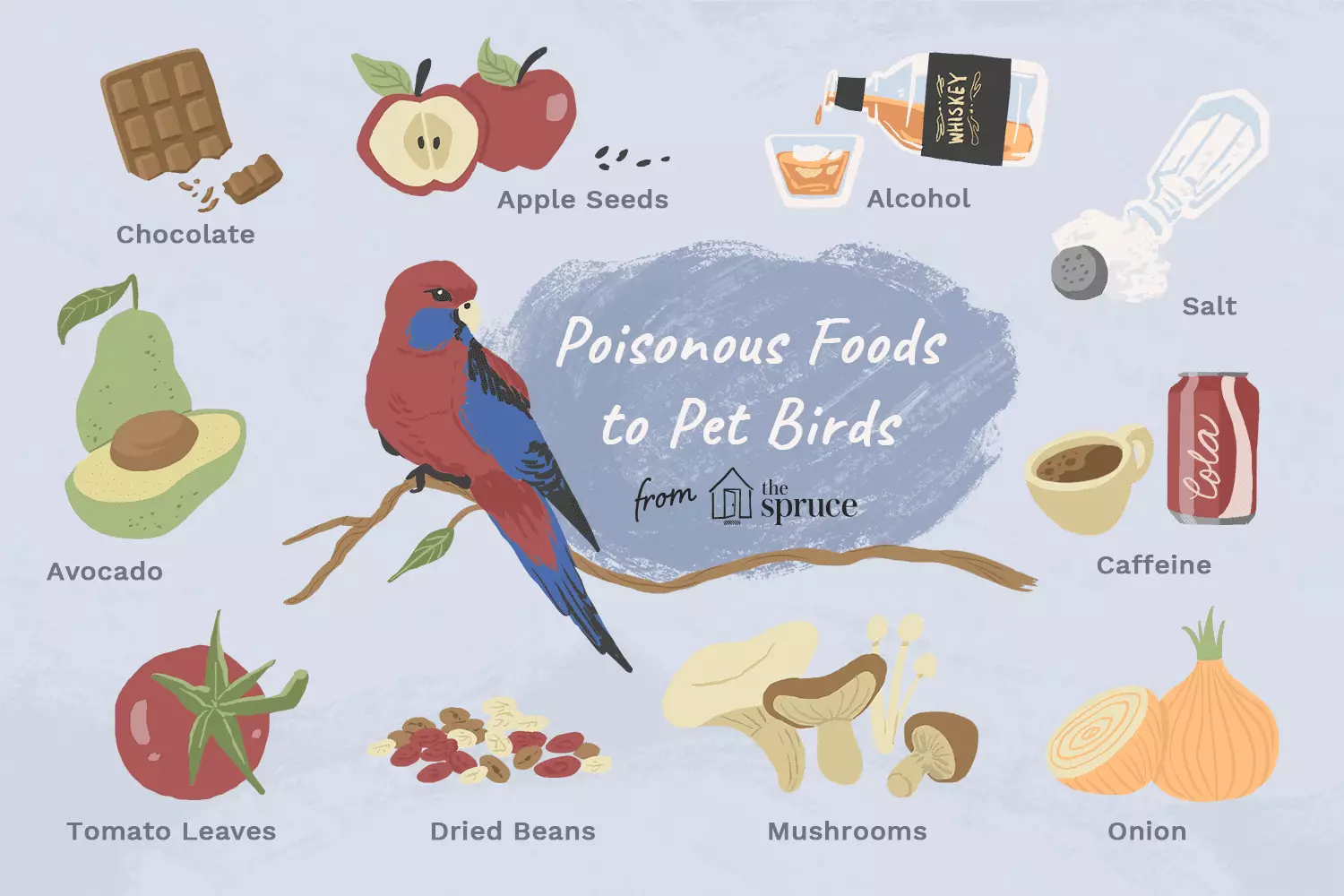When it comes to caring for pet birds, many owners may not be fully aware of all the foods that are safe and harmful for their avian companions. It’s common knowledge that birds can eat a range of fruits, vegetables, and seeds, but assuming all human foods are safe can lead to dire consequences. This article explores several foods that are particularly toxic to birds and offers essential advice for keeping your feathered friends safe and healthy.
Most people are aware that chocolate is not suitable for pets, yet it remains a silent danger in many households. Chocolate contains substances called theobromine and caffeine, both of which are highly toxic to birds. Ingestion can lead to severe gastrointestinal upset, including vomiting and diarrhea, and can escalate into more severe symptoms such as seizures and, tragically, death. The potential for chocolate poisoning underscores the importance of vigilance in households where birds reside.
Alcohol, another substance typically off-limits to dogs and cats, poses a similar risk to birds. Even a small amount can depress their central nervous system and lead to serious health complications or fatalities. The cocktails which might decorate a weekend gathering should be kept far from curious beaks. Owners are encouraged to ensure that their birds are safely secured away from any unattended alcoholic drinks to prevent accidental consumption.
While many fruits are safe and nutritious for birds, others can pose significant risks. Apples, for example, contain cyanogenic compounds within their seeds. Although the flesh of the fruit is safe for birds, the presence of seeds necessitates thorough preparation. Similarly, other members of the rose family, like peaches and cherries, also contain toxic seeds or pits, which should be removed before offering them to your bird.
Avocados present a particularly contentious issue. While some bird owners argue that the flesh alone is safe, the skin and pit have been linked to severe cardiac distress and may result in heart failure. It is prudent to avoid avocados entirely to alleviate any risk. In terms of mushrooms, many species can cause gastric distress or worse—liver failure. Hence, it’s best to steer clear of any and all mushrooms in a bird’s diet.
The nightshade family includes tomatoes and potatoes, which complicates matters further. While the fruit itself can be safe, the green parts—including the vine, stems, and leaves—are highly toxic to birds. Careful preparation ensures that birds only get the safe sections of the tomato. High acidity levels found in tomatoes also make them a less-than-ideal choice when there are healthier options available.
Focusing on liquids, caffeine is a big no-no. Drinks such as coffee, tea, and sodas bring on a slew of health issues for birds, such as arrhythmias and hyperactivity. Instead, opt for natural fruit or vegetable juices to treat your bird. These healthier alternatives provide hydration and essential nutrients without the risks associated with caffeine.
Lastly, while small amounts of onion or garlic powder are generally acceptable in bird diets, excess consumption can lead to severe digestive issues, including vomiting and diarrhea. The long-term effects of consuming these ingredients could lead to hemolytic anemia, resulting in respiratory problems—again making moderation key.
Being a responsible bird owner requires constant awareness of what foods are detrimental to your pet’s health. It’s critical to only share safe foods and prepare them properly to avoid exposing your bird to harmful toxins. By prioritizing a balanced avian diet free from these dangerous foods, bird owners can foster a long and healthy life for their beloved companions. Ultimately, vigilance in food selection not only prevents unfortunate incidents but enhances the overall well-being of pet birds. Keeping your feathered friends safe should always be a priority.

